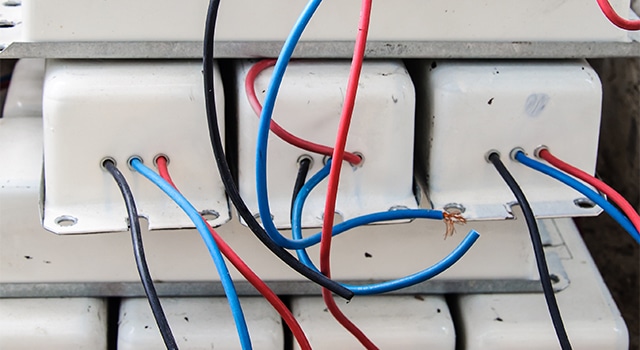Never before has it been so important to foster healthy, positive online spaces. For 97% of teenagers in the United States, internet use is a fundamental part of everyday life. A staggering amount of that time is dedicated to social media — more than half of these teens spend 4.8 hours a day on social media sites.
In many cases, social media consumes more of the average teen’s time than homework, face-to-face interactions, or extracurricular activities, with the potential for severe, often devastating, emotional consequences.
It’s time to understand the harmful effects of social media as parents, educators, and society as a whole. Here’s how to protect your teen from the repercussions and your options for fighting back.
How Social Media Affects the Brain
The influence of social media on the human brain is a topic of growing interest and concern — especially for young, developing brains. It becomes even more important to understand how constant online engagement can impact cognitive function and healthy development.
How Can Social Media Be Harmful to Your Teen’s Brain?
The harmful effects of social media on the teenage brain manifest in many ways. Excessive use exposes them to a range of factors that impact their cognitive well-being, such as overstimulation, constant media exposure, and the potential for digital addiction.
When every like, comment, and share triggers a response in the brain, social media use can set off a cycle of cognitive harm.
Hijacking the Brain’s Reward System
The brain’s reward system is indispensable. It fosters learning, growth, and even survival through the release of dopamine, a neurotransmitter associated with gratification and reward.
However, this system confronts an unprecedented challenge in the face of social media interactions. Instant gratification creates a powerful, complex feedback loop.
Understanding the Harm
The quick, easy rewards of social media interactions tap into the teen brain’s evolutionary wiring. Teens, navigating the fast-paced digital world, may find themselves in constant pursuit of online validation. As these dynamics manipulate or even skew their biological reward system, it can lead your child to crave — and believe they need — nonstop affirmation, even when away from screens.
This hijacking can wreak havoc on your child’s developing brain, affecting the healthy development and sensitivity to stimuli related to reward and punishment. This can have a lasting impact on their ability to regulate these systems long term.
Compromising Concentration
Rapid scrolling and bite-sized content comprise the heart of any social media platform. Consider that every minute, social media users:
- Watch 167 million TikTok videos.
- Like 4 million Facebook posts.
- Send 694,000 reels via direct message on Instagram.
- Upload 500 hours of video to YouTube .
The constant influx offers a near-infinite stream of information for your teen to engage with, challenging their brain’s capacity to focus on tasks that require sustained attention.
Understanding the Harm
Researchers have found that the overwhelming volume of content available today has changed the way we engage with information. This abundance of choices, however, comes at the expense of a sustained attention span.
With many responsibilities on their plate, your teenager undoubtedly benefits from a healthy attention span. It equips them to:
- Focus during classes.
- Comprehend complex topics.
- Stay alert while driving.
- Manage stress in a healthy manner.
- React to changing circumstances.
It’s not just a point of pride; a strong attention span is a foundational asset that empowers your child to navigate life’s challenges today and in the future.
Without it, even the simplest tasks can feel like an uphill battle, leading to a significant effect on mental and emotional health.
Effects of Social Media on Teen Mental Health

Social media is immensely appealing to teens. It offers a space to connect with friends, express themselves, stay updated on trends, and receive validation from peers. Yet, these benefits also carry a set of serious drawbacks in the form of social media addiction and a potential decline in your teen’s mental health.
How Is Social Media Harmful to Mental Health?
Social media has adverse effects on mental health, given inherent factors in the environments that may trigger feelings of inadequacy, stress, anxiety, dissatisfaction, and pressure. Although every teen’s experience is different, social media use has been tied to adverse mental health outcomes in the following ways.
Comparison
Constant exposure to the highlight reel of others’ lives can lead teens to compare themselves to their peers, distorting their self-perception and affecting their sense of self-worth.
Unrealistic Expectations
When social media posts portray a filtered, polished version of life, it pressures teens to meet unrealistic standards, resulting in feelings of stress or dissatisfaction.
Reliance on Validation
Positive reinforcement from likes, comments, and shares can cause teens to become dependent on external feedback for their confidence or self-worth.
Pressure to Conform
Trends and challenges can amplify already intense pressure to conform to societal ideals, which can spark internal conflict and a sense of inauthenticity.
Cyberbullying
Because online interactions can be anonymous, teens may experience harassment, humiliation, or threats on social media platforms.
Does Social Media Do More Harm than Good?
Studies indicate that excessive use of social media is sometimes linked to increased rates of depression, anxiety, and feelings of loneliness. There is little mystery as to why. Social media platforms are designed to be addictive. Teens can get lost in scrolling and tapping. Without reasonable limits, participation in social media platforms can take a serious toll on mental and physical well-being.
Teenagers are constantly exposed to idealized images. This, alongside the inconsistent ups and downs of internet validation, can fuel a heightened sense of self-consciousness and hinder the development of crucial life skills.
Are Social Media Companies Responsible for Harm?
Like any company offering a product or service to the public, social media organizations can be held liable if they fail to protect the well-being of their users. If your teenager has suffered harm as a result of social media company practices, there are routes you can take for legal recourse.
Has your teen been negatively impacted by social media platforms? Contact Weitz & Luxenberg for a free consultation.
Get a Free Case ReviewWhat Can You Do to Help Protect Your Teens on Social Media?
Acknowledging the undeniably harmful effects of social media, these platforms maintain a place of significance in the lives of many teens. Encouraging responsible use is essential to safeguard your child as much as possible. These 10 strategies can help:
- Foster open, non-judgmental communication about online experiences.
- Educate your teens about responsible online behaviors.
- Review and adjust the privacy settings on your teen’s social media accounts.
- Establish clear and reasonable boundaries on the amount of time they spend online.
- Model healthy online habits by demonstrating responsible social media use.
- Utilize parental controls to monitor and manage your teen’s online activities.
- Encourage your child to engage in offline activities such as sports or hobbies.
- Stay informed about the latest social media trends and potential risks.
- Designate certain areas of the house or specific times as tech-free zones.
- Teach your teens to navigate online content and conflicts with critical thinking — and to ask for help when needed.
With these tips, parents can support a positive experience and actively encourage a healthier relationship with social media.
What Social Media Circumstances Qualify for a Lawsuit?
Some situations warrant legal action against the responsible platforms. No social media company should achieve success from products and practices that endanger the safety and well-being of young lives.
Lawsuits hold social media companies accountable for contributing to significant physical and psychological harm. Social media addiction can lead to a number of tragic outcomes, including:
- Body dysmorphia.
- Eating disorders (e.g., anorexia, bulimia, binge-eating, and others).
- Mental health conditions (e.g., depression or anxiety).
- Self-harm, attempted suicide, or death.
Families who have experienced such severe harm or tragedy may qualify for legal recourse. You might also consider filing a social media harm lawsuit if:
- Your teen faced cyberbullying or harassment and the platform failed to address it.
- The platform didn’t remove harmful or unlawful content even after being notified of the issue.
- The platform didn’t follow content moderation rules and regulations.
Rest assured, there are various legal avenues that hold social media platforms liable for negative outcomes.
Product Liability Claims
Companies are legally responsible for the products they make available to the public. Adequate safety measures are non-negotiable, even for digital services. If a social media platform rolls out features or functionalities that result in harm — such as addiction-related issues — affected individuals and their families can pursue a social media harm lawsuit under product liability.
Keep in mind that the legal environment around social media is complex. Consulting with legal professionals familiar with technology and internet law is crucial when considering action against these platforms.
Get Assistance with Your Social Media Harm Lawsuit
Social media companies have a responsibility to protect vulnerable demographics from features and practices that have the potential to inflict devastating harm. Weitz & Luxenberg proudly advocates holding social media platforms accountable and seeking justice in the face of predatory practices.
Our lawsuit against social media companies consists of cases from families who have suffered harm due to the injurious algorithms and actions of these platforms. If your teenager has suffered from the negative effects of social media, justice is possible.
Contact our experienced firm for guidance. Call us at (833) 977-3437 or fill out the form for a free case evaluation.
 W&L Team
W&L Team 

